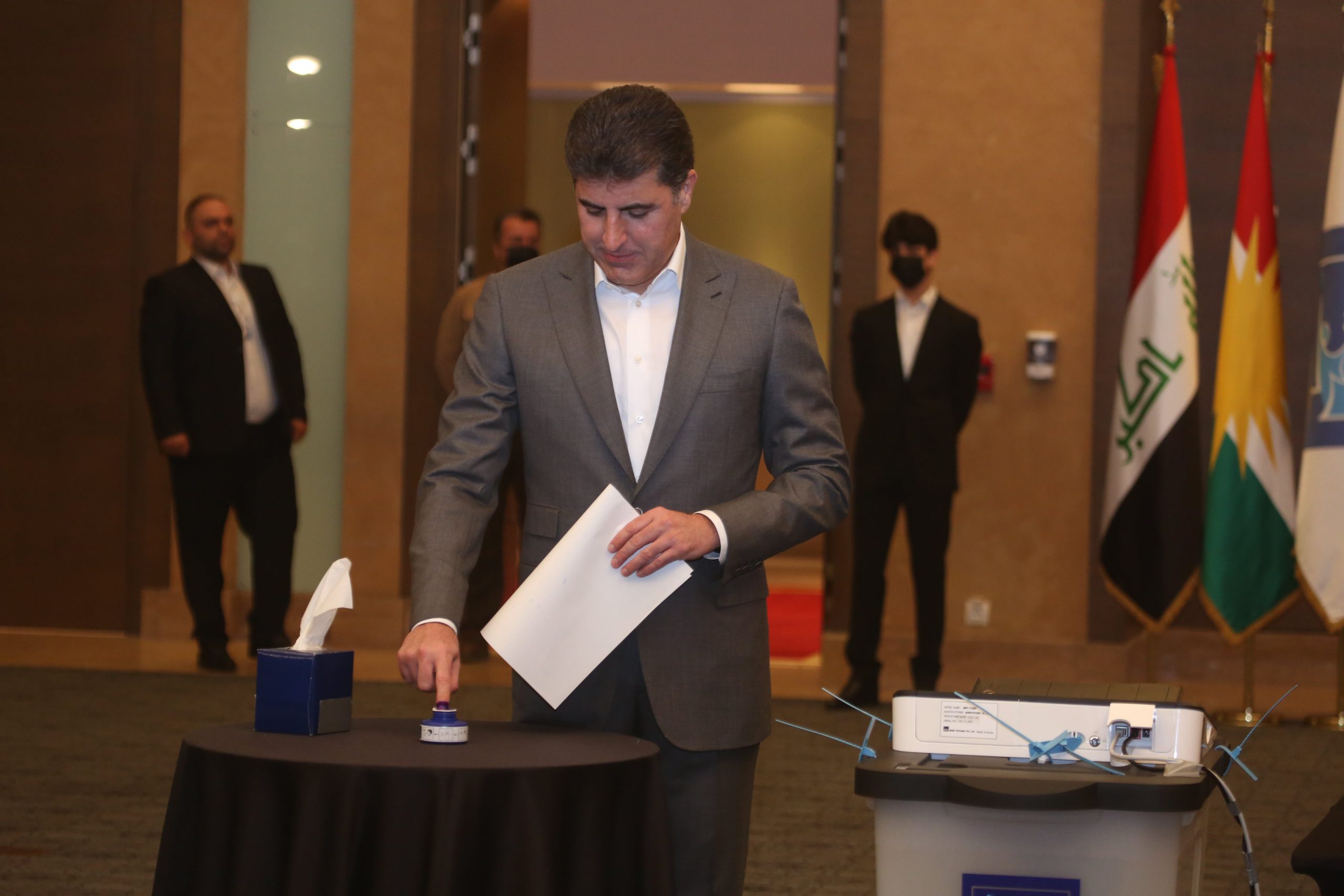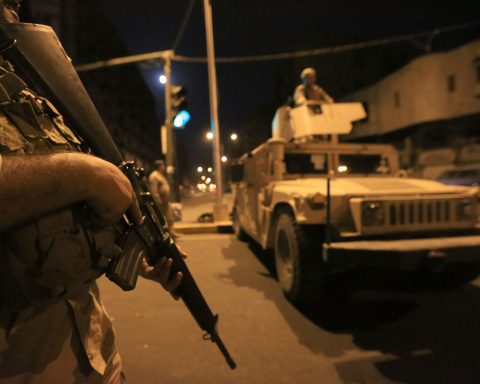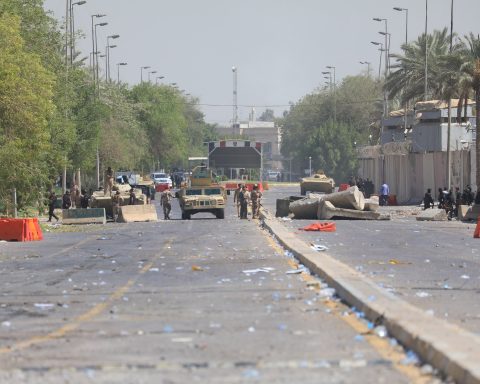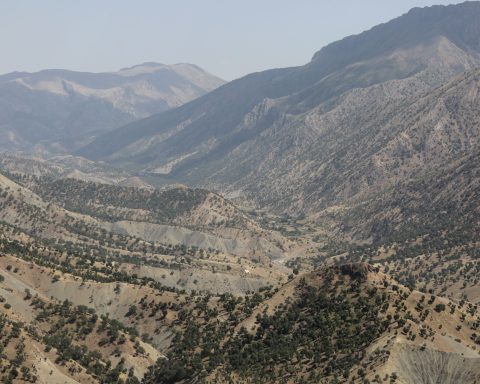The Iraqi elections came out with important results that could change the map of power and influence in Iraq. This may affect its relations with the countries of the region, but the changes were less severe in the Kurdish Regional Government of Iraq (KRG) in the north of the country.
The Kurdistan Democratic Party (KDP) continued to dominate the majority of Kurdish representation seats in the Federal Parliament, with the difference that it strengthened its dominance by obtaining additional seats, which increased its ability to impose its position within the region and in the relationship with Baghdad.
The elections resulted in a frantic race between two major Shiite blocs, competing to form the next government. Neither of them will be able to achieve this goal without an alliance with the other powerful Sunnis and Kurds, and here comes the chance for the biggest winner among the Kurds, represented by the KDP, to take advantage of this new situation and hold an agreement with those who respond to his conditions and demands.
Kurdish results map
Preliminary results showed that the KDP won a number of seats in the federal parliament, representing more than half of the total number of seats that the Kurds obtained combined, as it won 32 seats out of a total of 58 Kurdish seats in the 329-seat Iraqi parliament. In the 2018 elections, the KDP won 26 seats, and in return, the Patriotic Union of Kurdistan (PUK) won 16 seats, compared to the 18 it had in the last parliament. The Change Movement (Goran) allied with it failed to win any seats, and, on the other hand, the elections witnessed the emergence of the New Generation movement (NG), which won nine seats.
These results represent an important step forward for the presence of the KDP and its control over the political sphere in the KRG. If it manages to reach an understanding with the NG, it will almost monopolize the Kurdish voice and may actually achieve its goal by choosing a President of the Republic from among its ranks for the first time after the PUK monopolized the position since 2006.
This superiority will give broad and perhaps unprecedented opportunities for the KDP to impose conditions in exchange for supporting forces aspiring to form the government in Baghdad, including, of course, the shape of the relationship between the federal government and the KRG. Dealing with internal political and security files, or those related to the countries of the region, especially with Turkey, Iran, and the United States of America.
The KDP and alliances in Baghdad
The election results created a new political context that had never happened before, and created new opportunities for non-Shiite forces. The elections resulted in the Sadrist bloc winning 73 seats, and its leader, Muqtada al-Sadr, now considers himself responsible for forming the next government. However, this will remain undecided despite the great progress made by the Sadrist movement. Other Shiite forces have united against al-Sadr and are still hoping to form the next government. Some of these forces lost about two-thirds of their seats compared to the previous parliamentary session, but their alliance gave them a chance to compete again, and if they were able to form the largest bloc in Parliament, this would force the President of the Republic to assign it to form the government in accordance with the constitution.
Al-Sadr will need to ally with other forces to form a political majority that would give him the right to form a government, and the KDP is expected to be the main candidate for such an alliance, along with the (Sunni) Progress Party, which was led by the outgoing Speaker of Parliament, Mohamed al-Halbousi (37 seats). In addition, both parties will, of course, provide the terms relating to their claims.
It is too early to confirm the establishment of this alliance. On the other hand, the coalition of Shiite losers might offer greater incentives to the Kurds or Sunnis to join it, wishing to deny the Sadrists their victory.
This second possibility is still theoretically possible, but its price is for the Sunni and Kurdish parties to benefit from internal gains that may be unprecedented at the expense of external files that will remain in the hands of the same forces that enjoyed influence in Iraq, and have an alliance relationship and perhaps a dependency relationship with Iran in exchange for fluctuation with other countries in the region.
In this case, the relationship between Baghdad and Erbil is expected to cool down, and the Kurds may have additional gains in Kirkuk and Mosul. However, at the expense of their economic, security and political interests with Turkey and the United States, within the framework of this supposed alliance, Erbil will have to overlook the threats facing its security needs, because of Iran’s use of Iraqi territory for its strategic interests.
This second possibility is still theoretically possible, but it is weak and its price is for the Sunni and Kurdish parties to benefit from internal gains that may be at the expense of external influence files that will remain in the hands of the same forces in Iraq. It has an alliance relationship and perhaps dependency with Iran in return for fluctuation with other countries in the region
On the other hand, Al-Sadr will also be keen on giving the Kurds and Sunnis privileges and gains in exchange for an alliance with him, but in this case, it is expected that foreign files will be dealt with and with the countries of the region. In contrast, it may be more aligned with the orientations and interests of both Kurds and Sunnis, particularly in terms of marginalizing Iranian influence, and strengthening the relationship with Turkey and Arab countries. Thus, the Democrats and the larger winners from the Kurds and Sunnis will, as expected, receive gains from the opposition parties, but they may find that the external relations file is important for internal gains. They are closer to the program of the Sadrist movement than the program of its opponents, especially in terms of the relationship with Iran in particular.
Internal and external demands
The causes of problems in the relations between Erbil and the various governments in Baghdad have not changed much. Most notably, these are the problem of the region’s oil exports and the fate of its imports, the region’s share of the federal budget, as well as the revenues of the ports in the KRG region and the borders of the federal authorities, and the request of the federal government to provide it with statistics on the number of KRG employees and the amount of their salaries. It is expected that these issues will be on the agenda of any negotiations conducted by the KDP with the competing political forces in Baghdad for the purpose of alliance and participation in formulating the government’s plan.
In the context of foreign files, Erbil will seek to find an ally close to its needs. It will not be beneficial for the Kurds to enjoy any gains in the relationship with Baghdad if those gains are linked to the implementation of regional agendas that may turn the KRG region into a potential environment for the infiltration of terrorism, regional and international conflict, or a corridor of cross-border militias between Iran and Syria.
Geopolitical factors have imposed great sensitivity on the KRG, and it has been greatly affected by the Iranian-American conflict. Erbil has been exposed several times in recent months to missiles and drones by groups close to Iran, claiming that the Americans are in one of its regions. The presence of a government in Baghdad that prevents such attacks will be a priority for any future alliances, which naturally depend on the position of this government on the file of the relationship with Iran.
On the other hand, an important part of the economic interests of the KRG depends on the relationship with Turkey. The value of trade exchange between Turkey and Iraq amounted to about $21 billion, half of which is with the KRG, in addition to the huge security interests and historical relations. Therefore, the relationship of the future Baghdad government with Turkey will be part of the important external files that determine the shape of the future alliances of the KDP in Baghdad.
PKK…the common enemy
One of the most prominent internal affairs of direct regional importance is the issue of the Kurdistan Workers’ Party (PKK), which is based in Sinjar in northern Iraq and threatens Turkey and the KRG. It is expected that the Sadrist government will work on a different approach to this file, which may include cooperation with Erbil and Ankara to confront the direct threats of the PKK terrorist organization.
Erbil feels a direct threat from the PKK and describes it as the enemy after it killed a number of Kurdish security forces. Erbil announced that this terrorist organization has been attacking the Kurds in Iraq for 30 years and causing continuous tragedies. Due to this, the reconstruction was disrupted and life was deprived of returning to the hundreds of villages and countryside in the area. Erbil shares with Ankara the goal of getting rid of the PKK and expelling it from Iraq, but achieving such a thing requires the political will of a strong Iraqi government that can actually protect its interests and the security interests of its neighbors. This is not the case, if the Kurds participate in a government controlled by parties close to Iran.
The Baghdad government failed to implement the agreement it signed in October 2020 with the KRG to normalize the situation in Sinjar and expel the PKK from it. Rather, it worked to gain full control of the region through local forces affiliated with it, and through them, it participated in the recent Iraqi parliamentary elections. The Kurdish politician and media person Kifah Mahmoud says that “the PKK has gathered a number of candidates for the elections who receive support from external parties in order to complete the occupation of the city of Sinjar.”
The elections resulted in the loss of all PKK candidates in Sinjar, a result similar to the loss of the political forces supporting this terrorist organization in other regions of Iraq, and this may be a prelude to confirming the popular rejection of the PKK in Sinjar.
It is expected that Erbil will cooperate with the new government in Baghdad to implement the October agreement to expel the PKK terrorist organization, but this will not be possible in the event of an alliance with Shiite forces linked to Iran, as these forces support staying in Sinjar, and Erbil may find that its security interests require an alliance with Al-Sadr and support him in obtaining a parliamentary majority and forming a government, to ensure that Baghdad makes a real effort to implement the October 2020 agreement.














